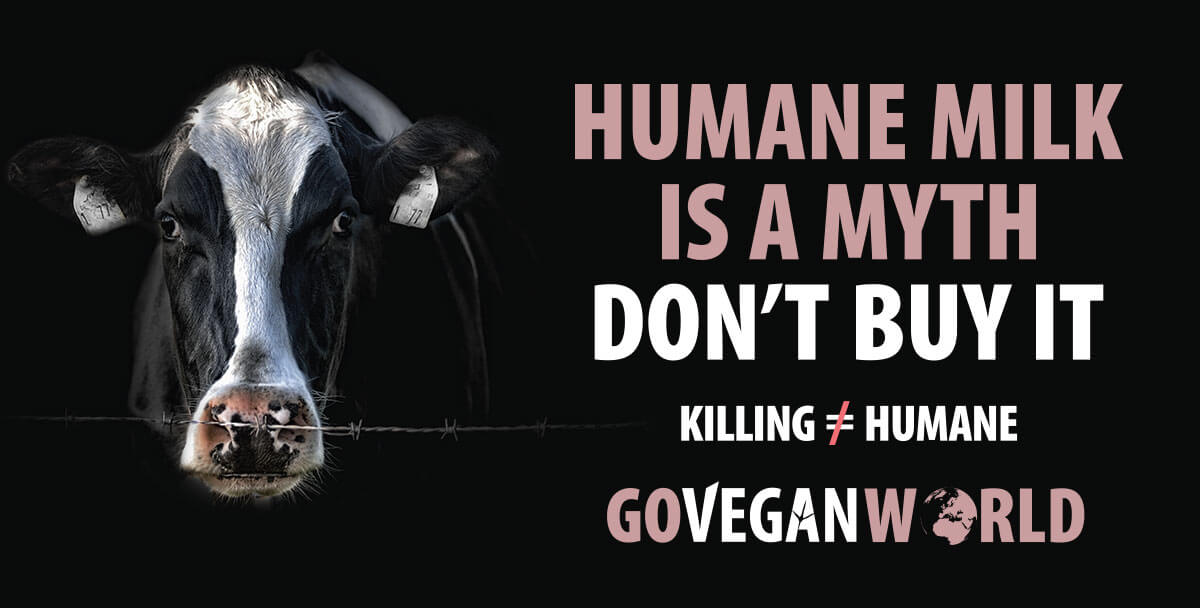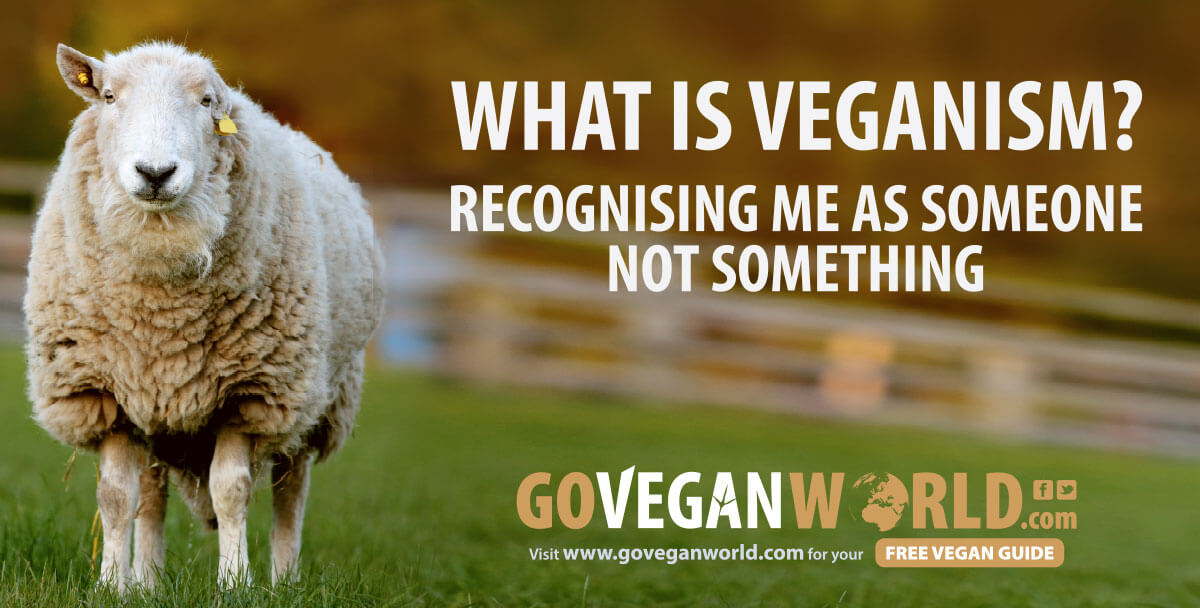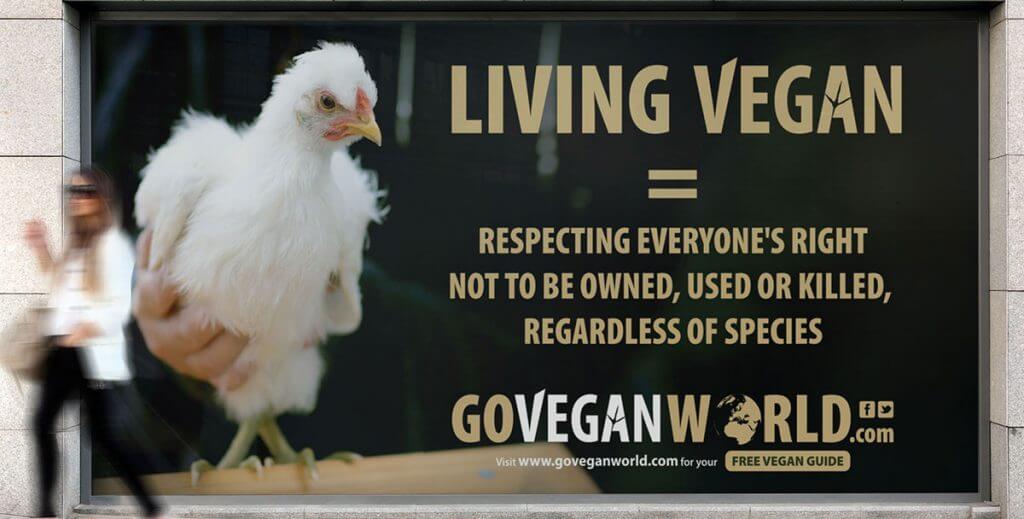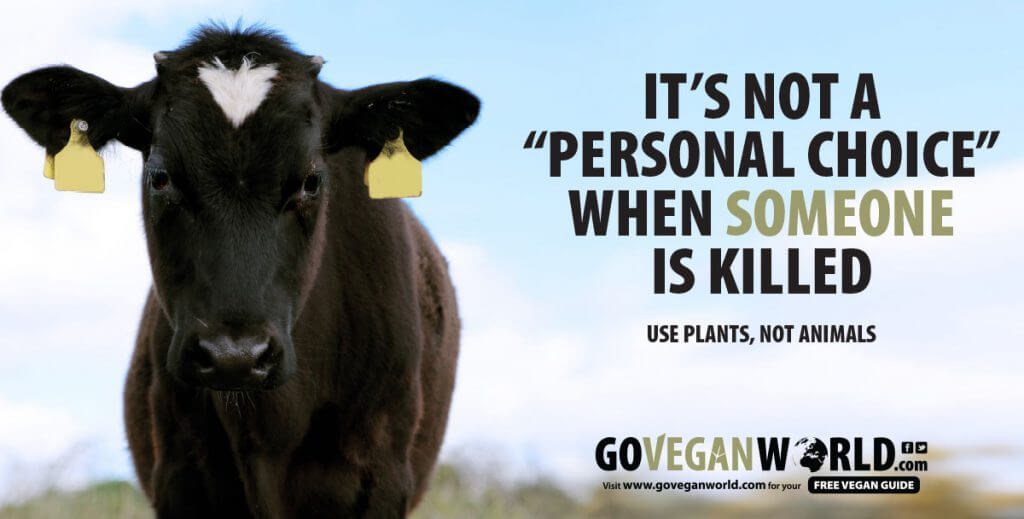
Vegan Rights in the UK
Human Rights
The 1998 Human Rights Act made it possible to enforce the human rights set out in the European Convention on Human Rights (“the ECHR”) through the UK courts as well as by taking a claim to the European Court of Human Rights (“ECtHR”).
The relevant rights contained in the ECHR are set out in European Vegan Rights. In addition to the European decision finding that veganism was protected, this is also confirmed in the literature of the UK Equalities and Human Rights Commission, which is responsible for monitoring UK compliance with European and International human rights obligations.
Vegans in the UK therefore have the absolute right to believe that it is morally wrong to subjugate, exploit and kill non-human animals and, because it is protected, to live according to that belief or conviction. The extent of this right and how it has been applied in practice is set out in European Vegan Rights.
In the UK we are unlikely often to encounter a direct, express legal restriction on our ability to manifest our vegan convictions; for example, a law requiring us to use or consume animals or animal products. What we do see, however, is apparently neutral laws that have an impact on the ability of vegans to live according to their vegan convictions. For example, where vegans are relying on the state / government to provide them with food and no suitable food is available.
Some examples of situations vegans living in the UK have encountered in recent years include:
- a vegan patient in a hospital did not eat for three days because the hospital failed/refused to provide suitable food;
- vegans with eating disorders have been denied access to suitable food and force-fed animal products against their convictions;
- a vegan was told by the Department for Work and Pensions that they must apply for a job in a slaughterhouse or else they would lose access to benefits;
- vegan children have been made to sit through presentations by dairy farmers during which they were told that they should not be drinking plant milk and that they would only get the nutrients they need from consuming dairy (entirely incorrect information, but which went wholly unchallenged/was reinforced by the teacher supervising the class);
- vegan children have been taught, against their moral convictions and those of their parents, that animals are ours to use and kill (for example, by schools themselves bringing animals onto school grounds for a period of months to “rear them” before sending them to be slaughtered and through egg hatching activities);
- vegan children and their parents have been ridiculed by students and by teachers;
- vegan children are being forced to participate in unnecessary experimentation on other animals;
- vegan children and their parents have been told by their school that they will not provide food that is suitable for vegans, with some schools expressly stating that they do not support veganism;
- vegan police officers and fire fighters have been refused uniform items made from animal-free materials.
Other relevant human rights discussed in European Vegan Rights apply in the UK, including the parental right to an education in conformity with protected convictions or beliefs, and the rights to freedom from discrimination, freedom of expression and assembly. Our blog looks in more detail at the right to education in the UK. The right to freedom of expression is very important in relation to our vegan educational ad campaign. We gave a talk on Defending our Ads From Challenge at VegFest London 2019.
Equality Law
In addition to our human rights, everyone in the UK has protections under European equality law. European equality provisions require the government to prohibit discrimination on a number of protected grounds, including on the grounds of philosophical belief, as we set out in European Vegan Rights. These protections have been incorporated into national law through the Equality Act 2010 (“the Equality Act”), applicable in England, Scotland and Wales. The Equality Act provides that “philosophical belief” is a protected characteristic.
In January 2020 a UK employment tribunal ruled in the case of Jordi Casamitjana v The League Against Cruel Sports that the claimant’s veganism was a protected philosophical belief under the Equality Act. Although a decision from an employment tribunal is not binding on other tribunals or courts, in reaching the decision the tribunal judge was applying existing law and the decision should therefore be considered to be an illustration of the correct application of the law to veganism.
The Equality Act implements an EU Directive, which must be interpreted consistently with the ECHR. Veganism was recognised as a protected belief or conviction under the ECHR as far back as 1993 (as discussed in European Vegan Rights), and given that the tests for (i) protected beliefs or convictions under human rights law and (ii) protected philosophical convictions under equality law are very similar, this was a strong indication that veganism would also be protected under equality law. Further strong indications that veganism was protected under the Equality Act came from decisions from UK employment tribunals finding philosophical beliefs related to climate change and anti-foxhunting to be protected, as well as a recent decision distinguishing veganism from vegetarianism. In addition, the UK Equality and Human Rights Commission (“EHRC”), which is the regulatory body responsible for monitoring the UK’s implementation of the EU equality provisions in Britain, has long recognised veganism as a protected philosophical belief or conviction under the Equality Act in its guidance materials.
Veganism is therefore a protected characteristic under the Equality Act. We have written in more detail about the decision in Jordi Casamitjana v The League Against Cruel Sports on our blog.
The Equality Act refers to four main ways in which a person can suffer discrimination and unfair treatment in relation to protected characteristics. These are: a) direct discrimination; b) indirect discrimination; c) harassment and d) victimisation. These protections are set out in more detail in European Vegan Rights.
For an example of direct discrimination against vegans in the UK see: www.thelawyer.com/vegan-rights-uk/
Who has the obligation?
The Equality Act applies to all employers, public and private, all providers of goods and services, public or private and to public functions. By extending protections beyond employers the UK has chosen to go further than is required under EU law; the protections have very broad application in the UK.
The prohibition against discrimination, direct and indirect, applies in all of these areas. The prohibition on harassment and victimisation in relation to protected beliefs applies expressly in the employment context but does not expressly feature for service providers or in primary education. However, in practice harassment and victimisation will often also constitute direct discrimination.
Public Sector Equality Duty
In addition to the specific requirements to refrain from and prevent discrimination, harassment and victimisation on account of vegan convictions, government entities also have a duty called the “Public Sector Equality Duty” or “PSED”. This requires the public sector (including hospitals, schools, local authorities, police, fire, transport authorities, and private organisations carrying out public functions) to go further than merely refraining from discriminating against people who hold vegan beliefs. They must also have due regard, in carrying out their functions, to the need to eliminate discrimination and advance equal opportunity.
This duty means that public bodies must remove or minimise disadvantages suffered by vegans on account of their vegan convictions, and take steps to meet the needs of vegans, where those needs are different to the needs of non-vegans. This is important to keep in mind when dealing with a government entity which is failing to take steps to enable vegans to live according to their convictions.
Northern Ireland
Northern Ireland is not covered by the Equality Act. Northern Ireland has devolved powers to develop and administer its own equality laws. The Fair Employment and Treatment (Amendment) Regulations (NI) 2003 outlaw discrimination in employment, the provision of goods, facilities and services and the provision of further and higher education, and public bodies are under a general equality duty in terms of Section 75 of the Northern Ireland Act. The NI Equalities Commission has confirmed that veganism is a protected characteristic, as it is a protected philosophical belief.
Leaving the EU/Brexit
Human Rights
Withdrawal from the ECHR does not flow automatically from Brexit. The UK would need to make a separate decision to withdraw from the ECHR and at the time of writing it remains to be seen whether or not the UK government will seek to do so. Unless and until the UK leaves the ECHR the protections apply, as we have set out.
Equality Act
European Equality Directives are EU law and therefore the UK will not necessarily be bound by them after leaving the EU, depending on the terms of exit. The Equality Act will remain part of UK law unless and until it is repealed or amended. The EU (Withdrawal) Bill indicated that the equality protections will remain part of UK law post-Brexit and that European Court of Justice (“ECJ”) caselaw interpreting those provisions would continue to be applied, however at the time of writing this is a developing situation.
UK Vegan Rights Conclusion
Our right to freedom of thought, conscience and belief gives us a basis upon which to press for adequate provision for vegans in our public entities and for government action to ensure adequate protection in the private sphere, while our equality laws protect us from discrimination based on our fundamental convictions in both the public and the private spheres. We can refer to both our human rights and the equality protections in advocating for suitable provision and alternatives. In terms of human rights we must also keep in mind the parental right to respect for fundamental convictions in education and in relation to equality laws we should refer to the PSED as well as the rules on discrimination when dealing with a public entity.
In this talk Go Vegan World’s Legal Counsel outlines the main legal rights that apply to vegans living in the UK and Ireland, under human rights and equality law, and how these rights can be used to defend against discrimination and push for better provision.
Further information is available on the following pages:




